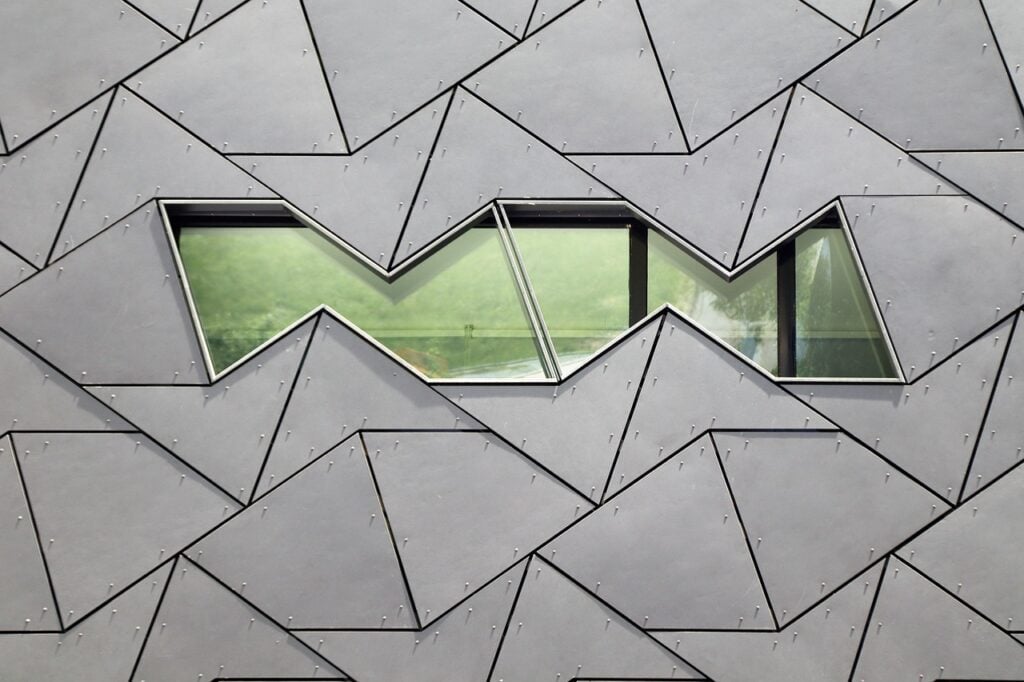A stay in a hotel is generally a positive experience, but incidents can happen: an unfortunate fall down the stairs, the theft of valuables from a room or a vehicle from the car park... When such events occur, the question of the hotelier's liability immediately arises. Who should bear the financial consequences of the damage suffered by the guest? The French law The law provides a precise framework for this liability, but with distinct and sometimes complex regimes, whether it concerns damage to the traveller's person or to their property. Understanding these rules is essential both for customers wishing to assert their rights and for operators seeking to control their risks.
Personal safety
When a guest suffers physical injury on the hotel premises (an injury following a fall, food poisoning linked to the hotel restaurant, etc.), the operator may be held liable on contractual grounds. The hotel contract places a general safety obligation on hoteliers towards their guests.
However, case law has consistently held that this is a case of obligation of means. What does this mean in practice? Hoteliers are not automatically liable for any accidents that occur on their premises. They simply have to prove that they took reasonable steps to ensure the safety of their guests. Conversely, it is up to the guest who is the victim to prove that the accident was caused by a fault the hotelier: a breach of his duties of care and diligence.
This fault can take various forms: a failure to maintain the premises (a slippery floor that is not marked, a defective step), dangerous equipment (an electrical installation that does not comply), a failure to indicate a particular danger, or insufficient supervision in certain areas (swimming pool, for example). If the customer is able to demonstrate this fault and the causal link between it and their loss, they will be entitled to compensation.
In the absence of proven fault on the part of the hotelier, or if the accident is exclusively the result of carelessness or clumsiness on the part of the guest (a fall due to inattention, for example), the operator will not be held liable. There are also cases where the blame is shared: a fault on the part of the hotelier (a loose banister) combined with carelessness on the part of the guest (he ran downstairs). In this case, liability may be shared between the hotelier and the victim, and compensation will be reduced in proportion to the customer's fault.
It should not be forgotten that if the fault of the hotelier (or his employees) is serious enough to cause serious injury or even death to a guest, he may also be held criminally liable for unintentional injury or manslaughter (articles 221-6 and 222-19 of the Criminal Code). This criminal action has an impact on the civil action for damages: the civil court often has to wait for the criminal court's decision before ruling ("the criminal keeps the civil in order"). An acquittal in criminal proceedings does not always preclude a conviction in civil proceedings, but a criminal conviction for misconduct definitively establishes that misconduct for civil proceedings.
The security of goods brought by the traveller: the specific regime of articles 1952 to 1954 of the Civil Code
The liability regime changes radically when it comes to goods that guests bring with them to the hotel (luggage, clothing, electronic equipment, money, jewellery, professional equipment, etc.). For these situations, the Civil Code has introduced a special regime, defined in articles 1952 to 1954. These rules, stemming from a European convention and incorporated into French law, are considered as public policyThis means that they cannot easily be overridden by contract.
The fundamental characteristic of this regime is that it establishes a strict liability of the hotelier. In other words, if a guest's belongings are stolen or damaged in the hotel, the operator is automatically presumed responsibleThis is a considerable advantage for the victimised customer. This is a considerable advantage for the victimised customer. As the Court of Cassation made clear in a ruling in September 2020 (Civ. 1ère, 23 Sept. 2020, no. 19-11.441), the hotelier's liability does not depend on proof of fault, which is only relevant in determining whether or not compensation should be capped.
This liability covers all "belongings" brought by the traveller onto the premises of the establishment or its private outbuildings (such as the hotel car park or garage). This includes a wide range of objects, including vehicles themselves under certain conditions (see below). Only live animals are explicitly excluded by law. Liability lasts for the duration of the guest's stay in the establishment.
Although customers do not have to prove that the hotel is at fault, they must nevertheless establish three elements in order to obtain compensation:
- Bringing goods into the hotel The claimant must prove that he or she had the allegedly stolen or damaged items with him or her. As this is a "necessary deposit", proof is free and can be provided by any means (witness statements, invoices, photos, bundle of evidence - article 1950 of the Civil Code).
- The reality of the theft or damage The customer must prove that the incident took place in the hotel during his or her stay. Making a swift complaint to the police is often a decisive piece of evidence in the event of theft.
- The extent of the loss Stolen goods: You must provide proof of the value of the stolen goods or the cost of repairs to damaged goods.
The limits of liability for property: ceilings and exemptions
Although the hotelier's liability is presumed, it is neither absolute nor unlimited. The law provides for cases in which the hotelier may be totally exonerated, and cases in which his obligation to make reparation is limited to a certain amount (capped).
The hotelier may escape liability (article 1954, paragraph 1 of the Civil Code) if he proves that the damage is due to :
- At the force majeure This is an external, unforeseeable and irresistible event. The courts interpret this concept very strictly. An armed robbery or a burglary, although violent, are generally not considered to be a criminal offence. not considered as exonerating cases of force majeure, as they are unfortunately foreseeable risks against which a hotelier must take reasonable precautions.
- At the nature or defect of the thing For example, if a particularly fragile object breaks without any external intervention.
- At the customer's fault If the guest has committed gross negligence that caused the damage (e.g. leaving the room door open all night, conspicuously displaying a large sum of money, leaving valuables on display on the seat of an unlocked car in the hotel car park). Depending on the seriousness of the guest's fault, the hotelier may be fully or partially exonerated.
Apart from these cases of total exoneration, the hotelier remains liable, but the compensation he must pay is in principle capped. Article 1953, paragraph 2 of the Civil Code sets this limit at 100 times the rental price of the accommodation per day. This is indeed a maximum ceiling: if the loss proven by the customer is less than this amount, the hotelier will only have to reimburse the actual loss. It is up to the hotelier to establish what the daily room rate was if this point is disputed.
However, this ceiling may be waived in certain situations where the hotelier's liability reverts to unlimited (article 1953 in fine). The hotelier will then have to compensate the customer in full for the proven loss. This is the case when :
- The customer must prove that the damage was caused by fault of the hotelier or one of his employees. It may be a matter of simple negligence: an obvious lack of supervision, an inadequately secured access door, giving a key to the wrong person, a defective or badly fixed safe, etc. As the above-mentioned 2020 judgment emphasised, this is where proof of fault becomes decisive once again, not in order to establish liability (which is presumed), but in order to obtain full compensation.
- The hotelier has refused to accept the customer's valuables without just cause. If a guest asks to deposit jewellery, cash or important documents in the hotel's central safe and the hotelier refuses without a valid reason, the hotelier will be liable for unlimited compensation if these items are subsequently stolen from the room. What are the legitimate grounds for refusal? The law refers to dangerous items, or items that are too valuable or bulky for the size and standing of the establishment. It is up to the customer to prove that he or she requested the deposit and was refused, and up to the hotelier to justify the legitimacy of the refusal.
Lastly, given the public policy nature of these rules, clauses that are sometimes posted in hotels to limit or exclude the operator's liability ("The management declines all responsibility in the event of theft...") are generally considered null and void if they contradict the legal provisions, particularly in the event of proven fault on the part of the hotelier or an unjustified refusal to accept a deposit.
Special case of objects left in the vehicle (Art. 1954 al. 2 C. civ.)
A specific rule applies when the theft or damage concerns items left by the customer in his vehicleor the vehicle itself, while it is parked.
The essential condition for this special liability to apply is that the vehicle must be parked in a place for which the hotelier is responsible. private use If the guest parks in the hotel's own garage, in a closed car park belonging to the hotel or for the hotel's exclusive use. If the guest parks on the public highway, even right in front of the hotel, the operator is not liable under this special regime. Case law focuses on the legal control of the site (ownership, rental) rather than the mere presence of a fence.
Where this condition is met, the hotelier is liable for theft or damage to the vehicle or objects in it (including those attached to the outside, such as a roof box), but compensation is subject to a different ceiling: it is limited to 50 times the rental price of the accommodation per day.
This 50-times limit may also be waived (unlimited liability) in the same cases as for items in the room: proven fault on the part of the hotelier regarding the safety of the car park (faulty lighting, uncontrolled access despite promises, etc.), or if the hotelier had specifically undertaken to provide special surveillance of the vehicle or the car park (advertising mentioning a "guarded car park", for example).
What happens if a guest suffers both theft from their room and theft from their car in the hotel car park? Can they combine the two compensation ceilings (100 times + 50 times the price of the room)? The tendency of the courts is to accept this combination, taking the view that these are separate losses subject to specific capping rules.
Managing risk: insurance and best practice
For hotel operators, managing these liability risks is essential. Taking out a professional indemnity insurance (RC Pro) is essential to cover any compensation due to customers in the event of personal injury or theft/damage to property. In addition to insurance, perfect knowledge of and strict compliance with the legal and regulatory framework for hotel operations are essential to prevent liability risks.
On the guest's side, a few simple precautions can limit the risks: systematically use the room safe or the hotel's central safe for valuables and cash, don't leave valuable objects in plain sight, lock your room and windows (especially on the ground floor), and lock your car in the car park.
In the event of an incident (accident, theft, damage), it is essential to react quickly: inform the hotel management immediately, take photos if possible, and above all, file a complaint to the police or gendarmerie in the event of theft or vandalism. Filing a complaint is often essential if you want to assert your rights with the hotelier or your insurer.
If you have been the victim of a theft or accident in a hotel establishment, or if you are an operator who would like to better understand and protect your property, we can help. manage your liability risksour firm can advise you.
Sources
- Civil Code (in particular Art. 1950, 1952-1954)
- Criminal Code (in particular Art. 221-6, 222-19)
- Key case law: Cass. Civ. 1ère, 23 September 2020, no. 19-11.441 (clarification on proof of fault and de-capping)




